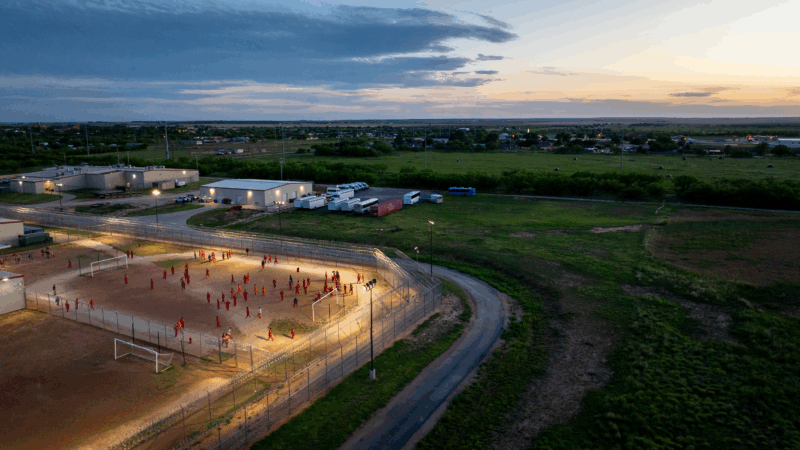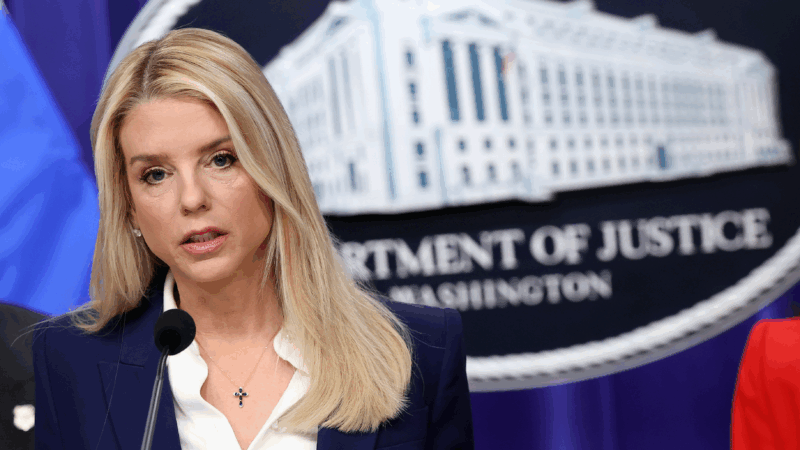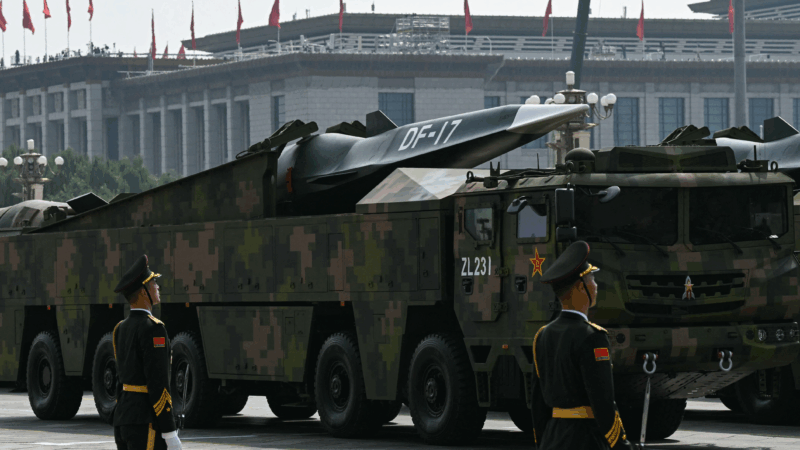Supreme Court extends pause on deportations under Alien Enemies Act in Texas
The Supreme Court on Friday granted a preliminary injunction that extends a pause on deportations of Venezuelan immigrants in northern Texas under the Alien Enemies Act.
President Trump had invoked the 18-century wartime law to quickly deport foreigners deemed a threat to the U.S.
The Supreme Court said the government didn’t give people at a detention center in Texas enough time to argue against their deportations.
It overruled an order from the Fifth Circuit Court of Appeals, which had said it didn’t have jurisdiction over the case and said the Venezuelans had appealed too quickly after a lower court ruled against them. But the Supreme Court disagreed.
“Here the District Court’s inaction—not for 42 minutes but for 14 hours and 28 minutes—had the practical effect of refusing an injunction to detainees facing an imminent threat of severe, irreparable harm,” the court wrote in an unsigned opinion. “Accordingly, we vacate the judgment of the Court of Appeals.”
The Supreme Court said its order was meant to preserve its jurisdiction over the case while letting lower courts decide how much notice should be given to people the government wants to remove quickly under the Alien Enemies Act. It said it’s not directly addressing whether Trump’s invocation of the Alien Enemies Act was legal.
“We have long held that ‘no person shall be’ removed from the United States ‘without opportunity, at some time, to be heard,'” the court said in the emergency order, quoting from prior opinions.
Justice Samuel Alito issued a dissenting opinion in the case, with which Justice Clarence Thomas joined, arguing that the Supreme Court was getting involved in the case too early and has no authority to issue relief.
President Trump reacted to the ruling on social media, saying the Supreme Court’s order would also more criminals to get into the U.S. He thanked Alito and Thomas for their dissent.
“The Supreme Court has just ruled that the worst murderers, drug dealers, gang members, and even those who are mentally insane, who came into our Country illegally, are not allowed to be forced out without going through a long, protracted, and expensive Legal Process, one that will take, possibly, many years for each person,” he posted. “The Supreme Court of the United States is not allowing me to do what I was elected to do.”
Push for due process in immigration
Friday’s ruling makes it clear that the Supreme Court is paying attention and keeping track of the Trump administration’s actions when it comes to quick removals.
Many of the lawsuits related to removals under the Alien Enemies Act, and even under other circumstances, have questioned whether the Trump administration has violated due process.
The Supreme Court on Friday referenced the case of Kilmar Abrego Garcia, the Maryland man the Trump administration says was mistakenly deported to El Salvador. That’s despite a 2019 order prohibiting the U.S. government from removing him to that country specifically.
The Trump administration has said it can’t bring Abrego Garcia back because he’s now under the jurisdiction of El Salvador; it also alleges he’s a gang member and belongs back in El Salvador.
The Supreme Court in Friday’s order basically said it doesn’t want to lose jurisdiction if people are flown out of the country before the courts resolve some issues tied to due process, and how much notice migrants should get before they’re removed from the U.S.
“The detainees’ interests at stake are accordingly particularly weighty,” the ruling said.
The Supreme Court had first gotten involved in the Alien Enemies Act case last month, after issuing a rare middle-of-the-night order to prevent immediate deportations under act.
The court did say that the order doesn’t stop the government from removing people from the U.S. “under other lawful authorities.”
Shootings at school and home in British Columbia, Canada, leave 10 dead
A shooting at a school in British Columbia left seven people dead, while two more were found dead at a nearby home, authorities said. A woman who police believe to be the shooter also was killed.
Trump’s EPA plans to end a key climate pollution regulation
The Environmental Protection Agency is eliminating a Clean Air Act finding from 2009 that is the basis for much of the federal government's actions to rein in climate change.
Pam Bondi to face questions from House lawmakers about her helm of the DOJ
The attorney general's appearance before the House Judiciary Committee comes one year into her tenure, a period marked by a striking departure from traditions and norms at the Justice Department.
From gifting a hat to tossing them onto the rink, a history of hat tricks in sports
Hat tricks have a rich history in hockey, but it didn't start there. For NPR's Word of the Week, we trace the term's some 150-year-history and why it's particularly special on the hockey rink.
The U.S. claims China is conducting secret nuclear tests. Here’s what that means
The allegations were leveled by U.S. officials late last week. Arms control experts worry that norms against nuclear testing are unraveling.
Ukrainian sled racer says he will wear helmet honoring slain soldiers despite Olympic ban
Vladyslav Heraskevych, a skeleton sled racer, says he will wear a helmet showing images of Ukrainian athletes killed defending his country against Russia's full-scale invasion. International Olympic Committee officials say the move would violate rules designed to keep politics out of the Olympics.








